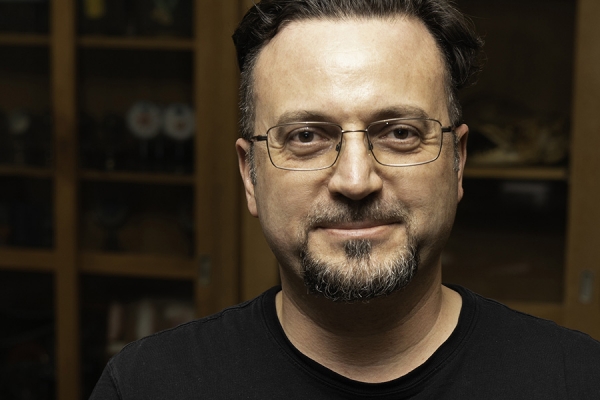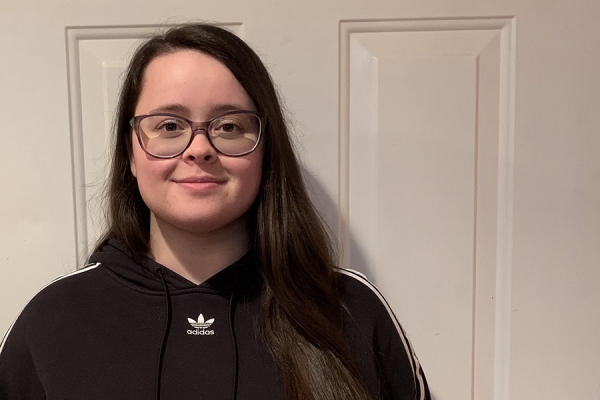 John Albanese has recently acquired a portable 3D osteology lab he will use to scan and analyze bones, crime scenes, and tombs. He will use it on site when he resumes his work in Greece, Brazil, and in Manitoba with the Sioux Valley Dakota Nation.
John Albanese has recently acquired a portable 3D osteology lab he will use to scan and analyze bones, crime scenes, and tombs. He will use it on site when he resumes his work in Greece, Brazil, and in Manitoba with the Sioux Valley Dakota Nation.
Normally at this time of year, UWindsor professor John Albanese would find himself in a Grecian tomb, discovering what life was like at the time of the Trojan War.
He could be in Brazil, using forensic science to document human rights atrocities, or collaborating with First Nations in Canada to identify remains of children in unmarked graves near the sites of a former residential school.
Instead, the pandemic has grounded the forensic anthropologist. But it hasn’t slowed his work.
Dr. Albanese is keeping busy training on a new portable three-dimensional scanner and related software — cutting-edge technology in the field of forensics. It’s a complete osteology lab in a box, housed in a case small enough to be considered a carry-on bag by airlines. It can be used to analyze individual bones or scan entire burial sites.
Albanese has purchased the portable lab with $90,000 in funding from the federal and provincial governments. Half the money has come from the Canada Foundation for Innovation’s John R. Evans Leaders Fund and half from the Ontario Research Fund, grant programs designed to pay for equipment or other infrastructure researchers need to advance their work.
The portable lab complements traditional methods, with greater precision. And it can save time.
“I can scan a grave the size of a small to medium-sized bedroom in about 20 to 30 minutes,” Albanese says.
“There’s a richness of information you can get without disturbing a site. We can create a 3D model then use that data offsite to do more detailed analysis.”
He foresees using the equipment investigating human rights violations: “It can be used to scan individual bones for detailed analysis, and entire crime scenes for special analysis.”
Albanese, who last year won a faculty award from the Organization of Part-time University Students, is using the scanner to train the next generation of forensic scientists and is developing best practices for the use of scanners in crime scene investigations.
Since 2015, Albanese has been studying 3,000-year-old remains from Greece that date from the Mycenaean period of the Late Bronze Age. A royal tomb and ossuary, where up to 150 biologically related people and some animals are buried, was discovered in 1991 and excavated between 1992 and 1994. The beehive-shaped tomb, called a tholos tomb, is in Tzanata on the Greek island of Kefalonia.
“I’ve spent four to six weeks in Greece every spring analyzing the bones until COVID restricted travel last year,” Albanese says. “I hope to return in 2022.”
His work continues with fellow researchers at Simon Fraser University and the Sioux Valley Dakota Nation on the identification and repatriation of remains of children from the Brandon Residential School in Manitoba. The project, which the Social Sciences and Humanities Research Council says will “foster restorative justice, repatriation, and reconciliation through forensic anthropology,” has received $188,000 in funding over three years.
The Brandon Indian Residential School, as it was known during Canada’s forced assimilation of Indigenous peoples, operated between 1895 and 1972. Many children died while at the school. Before the pandemic struck, Albanese’s research focused on assisting communities in returning those children’s remains to their families.
“Everything’s on pause because of travel restrictions, but once this pandemic is over, I’m going to have a lot of pent-up research to do,” he says.
—Sarah Sacheli






